JNVU conducts admission for UG and PG programs based on national entrance tests like REAP, JEE Main, GATE, and RAJUET and merit-based process for most general courses. The admission process follows a structured counselling system.
JNVU Important Dates
Here are the tentative important dates for JNVU based on previous academic cycles:
| Events |
Dates (Tentative) |
| UG Application Start |
May 27, 2026 |
| UG Application Last Date |
June 7, 2026 |
| PG Application Start |
May 27, 2026 |
| PG Application Last Date |
June 15, 2026 |
| REAP Entrance Exam (B.E) |
May 2026 |
| UG Merit List Release |
June 2026 |
| PG Merit List Release |
July 2026 |
| Counselling & Seat Allotment |
June-July 2026 |
| Commencement of Classes |
July-August 2026 |
JNVU UG Admission
JNVU offers admission to various UG programs in Arts, Science, Engineering, Commerce, Law, and Management streams. The admission process is based on national entrance tests and merit-based selection conducted through REAP, JEE Main, and RAJUET.
UG Programs & Specializations:
- B.E: Computer Science & Engineering, Artificial Intelligence & Data Science, Electrical Engineering, Mechanical Engineering, Civil Engineering, Mining Engineering, Petroleum Engineering, Chemical Engineering, Electronics & Communication Engineering, Electrical & Electronics Engineering.
- B.Sc: Physics, Chemistry, Mathematics, Botany, Zoology, Computer Science, Geology, Microbiology, Environmental Science, Statistics.
- B.A: English, Hindi, History, Political Science, Economics, Geography, Philosophy, Psychology, Sociology.
- B.Com: General Commerce.
- B.Sc (Hons) Computer Science: Specialized computer science honors program.
- BCA: Computer Applications.
- BBA: Business Administration with specializations in Finance, Marketing, and Human Resources.
- B.Pharm: Pharmaceutical Sciences.
- LLB: 3-year Bachelor of Laws program.
- BA LL.B: 5-year integrated law program.
Eligibility for UG Programs:
- Passed 10+2 in relevant subjects (Science for B.E/B.Sc, Commerce for B.Com, Arts for BA, etc.)
- Merit-based selection: Based on entrance examination scores (REAP/JEE Main) and 10+2 marks.
- Minimum aggregate: 50% for General/OBC, 45-48% for SC/ST candidates in 10+2
- Category-wise Reservation: SC (15%), ST (7.5%), OBC (27%), EWS (10%), PWD (5%).
JNVU PG Admission
JNVU offers PG programs across Arts, Science, Engineering, Commerce, Law and Management disciplines. The PG admission is conducted based on national entrance tests and merit in the qualifying degree examination.
PG Programs & Specializations:
- M.E: Computer Science & Engineering, Electronics & Communication Engineering, Mechanical Engineering, Civil Engineering, Mining Engineering, Petroleum Engineering, Chemical Engineering, Power Systems.
- M.Sc: Physics, Chemistry, Mathematics, Botany, Zoology, Computer Science, Geology, Microbiology, Environmental Science, Statistics, Data Science.
- M.A: English, Hindi, History, Political Science, Economics, Geography, Philosophy, Psychology, Sociology.
- M.Com: Commerce with specializations in Accounting, Finance, and International Business.
- MBA: Master of Business Administration with general and specialized tracks.
- MCA: Master of Computer Applications.
- M.Ed: Master of Education.
- LLM: Master of Laws.
Eligibility for PG Programs:
- Bachelor's degree in the relevant field with a minimum of 50% marks.
- Merit-based selection: Based on marks obtained in the qualifying degree examination.
- Entrance tests: GATE (for M.E), CAT/CMAT/MAT/XAT (for MBA), University entrance exams (for other PG programs).
JNVU PhD Admission
JNVU offers doctoral programs in Arts, Science, Engineering, Commerce, Law, and Education disciplines. The PhD admission process is conducted according to JNVU guidelines and UGC regulations. The selection criteria include academic records, entrance tests, and interviews.
PhD Programs Available:
- Science: Physics, Chemistry, Mathematics, Botany, Zoology, Computer Science, Microbiology, Environmental Science.
- Engineering: Computer Science & Engineering, Electronics & Communication, Mechanical Engineering, Civil Engineering, Electrical Engineering, Mining Engineering.
- Arts: English, Hindi, History, Economics, Political Science, Philosophy, Sociology, Psychology, Geography.
- Commerce: Commerce and related business disciplines.
- Education: Educational Research and Development.
Eligibility Criteria:
- Master's degree in a relevant discipline with a minimum of 55% marks
- NET/CSIR-NET qualification preferred but not mandatory
- Research proposal in the chosen field
Selection Process:
- Academic Record Evaluation: Assessment of previous academic performance (Bachelor's and Master's degrees)
- University Entrance Test: Subject-specific written examination
- Interview: Personal interview with the departmental research committee
- Research Proposal: Presentation and evaluation of research proposal
Key Features of PhD Admission:
- Duration: Minimum 3 years, maximum 6 years
- Mode: Full-time and Part-time options available
- Research Areas: Diverse research opportunities across multiple disciplines, including Thar Desert Studies and Border Security Research
- Supervision: Experienced faculty with active research expertise and publications
- Fellowship: University fellowships of INR 12,000/month are available for eligible candidates
JNVU Admission Process
JNV University conducts admissions based on entrance tests (REAP, JEE Main, GATE) and academic merit for most programs. The admission process involves REAP/JEE-based selection for B.E, RAJUET-based selection for professional programs, and merit-based selection for UG/PG Arts and Science through the following process:
Step 1: Check Eligibility Criteria
Candidates must fulfil the eligibility requirements for their desired course. For UG programs, students need 10+2 with relevant subjects and minimum aggregate marks, while PG programs require a bachelor's degree in the appropriate discipline with minimum 50% marks.
Step 2: Appear for Entrance Exam
Register and appear for the relevant entrance examination:
- REAP for B.E (based on PCM scores)
- JEE Main for B.E (alternative to REAP)
- RAJUET for law and professional programs
- GATE for M.E programs
- CAT/CMAT/MAT/XAT for MBA programs
Step 3: Merit List Publication
The university publishes merit lists based on entrance exam scores and academic performance. Students are selected based on their entrance examination rank, qualification marks, and category-wise reservations.
Step 4: Register on JNVU Portal
Visit the official website @jnvu.co.in and register for counselling with your entrance exam score and rank.
Step 5: Counselling and Seat Allotment
Selected candidates must attend the counselling process (online/offline) for document verification and seat allocation. Students can choose their desired program/specialization based on merit and availability. Multiple rounds of counselling are conducted to fill all available seats.
Step 6: Final Admission
After document verification and fee payment, students receive admission confirmation and can begin their academic journey at the assigned college/department.
PhD Application Process:
- Eligibility Check: Verify eligibility for the desired discipline and department.
- Application Submission: Submit the application with required documents on the JNVU portal or directly to the department.
- Entrance Test & Interview: Appear for the written test and departmental interview.
- Research Proposal Presentation: Present and get your proposal evaluated by the research committee.
- Final Admission: Approval and registration as a doctoral research scholar.
Note: The maximum age limit for UG programs is 21 years, with relaxations of 3 years for SC/ST/OBC/MBC candidates and 5 years for differently-abled candidates.
JNVU Cutoff
JNVU accepts multiple entrance exams for MBA admission, including CAT, XAT, CMAT, and MAT. UG admissions are based on merit from qualifying examinations. For B.E admissions, cutoff marks depend on REAP/JEE scores and seat availability. JNVU cutoff scores are released separately for each round of counselling, with significant variations between General, OBC, SC, ST, and EWS categories.
JNVU CMAT Cutoff 2024
The JNVU CMAT Cutoff 2024 for the General Category is listed below. The overall cutoff percentile for CMAT is 65.
JNVU Hostel Admission
JNV University provides separate hostel accommodations for male and female students with a focus on comfort, safety, and community living. JNVU Hostels are available within the campus with modern amenities and subsidised fees for reserved category students.
| Hostel Name |
Key Features |
| Boys Hostels (8 blocks) |
600+ capacity, shared rooms (3-4 students), 24x7 electricity and Wi-Fi, RO water, study rooms, gymnasium, TV room, recreation areas |
| Girls Hostels (4 blocks) |
400+ capacity, shared rooms (3-4 students), enhanced security features, separate laundry and salon facilities, meditation room |
| International Students Hostel |
Special provisions for international scholars, modern amenities, quiet study environment |
| Hostel Fees (General/OBC/EWS) |
INR 1,500 (monthly), varies by hostel block |
| Hostel Fees (SC/ST) |
INR 900 (monthly, subsidised rate) |
| Monthly Mess Charges |
INR 1,200 (includes three meals daily) |
| Special Hostel (PWD) |
Accessible rooms with ramps, elevators, and specialized facilities for differently-abled students |
JNVU Hostel Admission Process
Step 1: Secure admission to an academic program before applying for the hostel.
Step 2: Obtain and fill the hostel application form; provide personal, academic details, attach documents & photographs.
Step 3: Submit required documents: admission letter, mark sheets, medical certificate, character certificate, income certificate (if applicable), parent/guardian consent, ID/address proof, and photographs.
Step 4: Pay the annual hostel fees and mess charges; submit fee receipts with the application.
Step 5: Allocation based on merit, academic performance, availability, and application date; priority given to students from distant locations; options for specific hostels subject to availability.
Step 6: Final hostel allotment list published; students report to assigned hostel for registration and check-in.
JNVU Scholarships
JNVU provides various scholarships funded by the university and private donors to support deserving and meritorious students. Below are the JNVU scholarships offered through the university and private funding:
| Scholarship Name |
Details |
| JNVU Merit Scholarship |
Awarded to top performers in merit lists across UG and PG programs; full or partial fee waiver based on merit ranking and category |
| JNVU Sports Scholarship |
For students representing university in national and state-level sports competitions; monthly allowance of INR 2,000 to INR 5,000 and fee waivers |
| JNVU Research Excellence Scholarship |
For PhD and postdoctoral scholars engaged in high-impact research; monthly allowance and research contingency grants |
| Academic Excellence Award |
For students securing highest marks in their respective programs; one-time cash award of INR 5,000 to INR 25,000 depending on program level |
| JNVU Alumnus Endowed Scholarship |
Funded by alumni donations for students from economically weaker backgrounds with good academic performance; variable amounts based on fund availability |
| JNVU Innovation and Entrepreneurship Grant |
For students developing innovative projects and startups; grants up to INR 50,000 to support project development and commercialization |
| Faculty-Sponsored Scholarship |
Department-wise scholarships offered by faculty for exceptional students in their disciplines; variable amounts and criteria |
| Women Empowerment Scholarship (University Funded) |
Exclusive scholarship for girl students pursuing engineering and professional courses; partial or full fee waiver and monthly stipend of INR 1,000 to INR 3,000 |
| First Generation Learner Scholarship (University Funded) |
For students whose parents/guardians have not received formal higher education; fee concession of 25-50% based on merit and income criteria |
| JNVU Teaching Assistant Fellowship |
For meritorious students in postgraduate programs to work as teaching assistants; monthly stipend of INR 3,000 to INR 6,000 along with fee waiver |
Note: The availability and amount of university-funded scholarships may vary each academic year based on institutional budget allocations and fund availability. Students are advised to contact their respective departments or the JNVU Scholarship Cell for latest information and application procedures.
JNVU Admission Conclusion
JNVU focuses on practical learning, research, and overall student development. It is an excellent choice for students seeking quality education with a rich academic heritage at affordable costs.
Admissions at JNV University happen through both merit and entrance exams, which means students who work hard are rewarded. With over 140 courses, students can pick from many subjects and interests. JNVU is a great fit for those who want deep study, strong research, a friendly campus, and a respected degree.
JNVU Admission FAQs
Ques. What is the scope of B.E from JNVU? Is private college better than JNVU?
Ans. B.E from JNVU offers excellent scope with affordable fees (approximately INR 1,96,000 total for entire program) compared to private colleges (often INR 5-15 lakhs). JNVU B.E provides strong engineering foundation with modern laboratories, experienced faculty, and curriculum aligned with industry requirements. Graduates secure placements with top IT and core companies including TCS, Infosys, Wipro, Amazon, and DRDO. The four-year program emphasizes both theoretical knowledge and practical skills with internship opportunities. Compared to private colleges, JNVU offers better academic credibility with UGC recognition, NAAC B++ accreditation, and superior faculty expertise at significantly lower costs. While some premium private colleges may claim better placement statistics, JNVU B.E provides excellent quality engineering education at one-fifth the cost of private institutions, making it the clear winner for cost-conscious students without compromising on education quality.
Ques. Does anyone know the admission process in JNVU? Got selected in first merit list !!
Ans. Congratulations on selection in JNVU's first merit list. The admission process following merit list selection involves several steps requiring prompt action. Visit the JNVU admission portal or your specific college admission office within the stipulated deadline mentioned in the merit list notification (usually 3-5 days). Carry all original documents including Class 10 and 12 mark sheets, transfer certificate, migration certificate, category certificate if applicable, domicile certificate, Aadhar card, and passport-size photographs. The admission committee verifies your documents and assigns you a registration number. Pay the admission fees through online payment, demand draft, or designated bank counters as specified by the college. Fees vary by program ranging from INR 19,200 to INR 1,96,000 depending on the course selected. After fee payment, complete hostel registration separately if you require accommodation. Attend the mandatory orientation session where you receive student ID cards, library cards, and academic calendars. Complete biometric registration and collect your timetable from the respective department. The entire process typically completes within 2-3 days of document verification.
Ques. JNVU vs Lachoo, which college is good for B.Com?
Ans. Choosing between JNVU and Lachoo Memorial College for B.Com depends on your specific priorities and career goals. Lachoo Memorial College is a well-established private institution in Jodhpur affiliated with JNVU, known for focused commerce education, better infrastructure, and more personalized attention with smaller batch sizes. Lachoo offers superior placement assistance for B.Com students with tie-ups with chartered accountancy firms, banking institutions, and corporate companies. The college charges higher fees (approximately INR 60,000-80,000 for entire B.Com) compared to JNVU affiliated government colleges (INR 41,850 total). However, studying directly at JNVU campus provides access to university-level facilities, larger peer network, diverse departmental interactions, and significantly lower costs. JNVU's commerce department has experienced faculty and comprehensive curriculum. For students planning CA/CS/CMA alongside B.Com, Lachoo's flexible attendance policies and exam-focused teaching prove advantageous. For budget-conscious students seeking quality education with extensive campus facilities and planning higher studies or government jobs after B.Com, JNVU presents better value. Both institutions provide adequate B.Com education; choose Lachoo for better individual attention and placement support, choose JNVU for affordability and comprehensive university experience.
Ques. Can you share your journey from JNVU to JNUEE AIR 1 in M.A. Hindi Literature?
Ans. Achieving JNUEE AIR 1 in M.A. Hindi Literature from JNVU background requires dedicated preparation strategy and consistent effort. Students who accomplished this feat typically followed rigorous study schedules starting from final year graduation. They thoroughly studied NCERT Hindi textbooks from Class 6-12 covering basic grammar, literature, and language fundamentals. Reading original works of major Hindi authors like Premchand, Nirala, Mahadevi Verma, and contemporary writers provided deep literary understanding. Solving previous years' JNUEE question papers helped identify exam patterns and frequently asked topics. Many successful candidates joined coaching institutes in Delhi or online test series specifically designed for JNUEE preparation. Regular writing practice for descriptive answers improved articulation skills. JNVU's strong Hindi department with experienced faculty provided solid foundational knowledge. Students utilized JNVU library resources extensively reading critical essays and research papers. Forming study groups with peers preparing for competitive exams maintained motivation and enabled knowledge sharing. Consistent daily study of 6-8 hours focusing on weak areas while maintaining strength in familiar topics proved crucial for securing top rank.
Ques. Which one is better, JNVU, Jodhpur or Faculty of Law, DU for a three-year LLB?
Ans. Faculty of Law, Delhi University is significantly better than JNVU for three-year LLB programs considering multiple factors. DU Law Faculty has superior national ranking, more experienced faculty, better infrastructure, and significantly stronger placement opportunities with top law firms and corporate legal departments. DU's location in Delhi provides direct access to Supreme Court, High Court, and numerous legal internship opportunities unavailable in Jodhpur. The alumni network of DU Law is far more extensive and influential across judiciary, corporate law, and government legal services. However, JNVU offers advantages including much lower fees (approximately INR 36,000 vs DU's INR 60,000-80,000), less competitive admission process, and adequate education for students targeting Rajasthan judicial services or local legal practice. If you seek national-level legal career, corporate law opportunities, or judicial services at higher levels, choose DU Faculty of Law despite higher costs. If budget constraints exist or you plan practicing in Rajasthan with focus on affordability, JNVU provides decent legal education at fraction of the cost.

![Jai Narain Vyas University - [JNVU]](https://image-static.collegedunia.com/public/college_data/images/logos/1394438268Jai Narain Vyas University.png?h=71.7&w=71.7&mode=stretch)



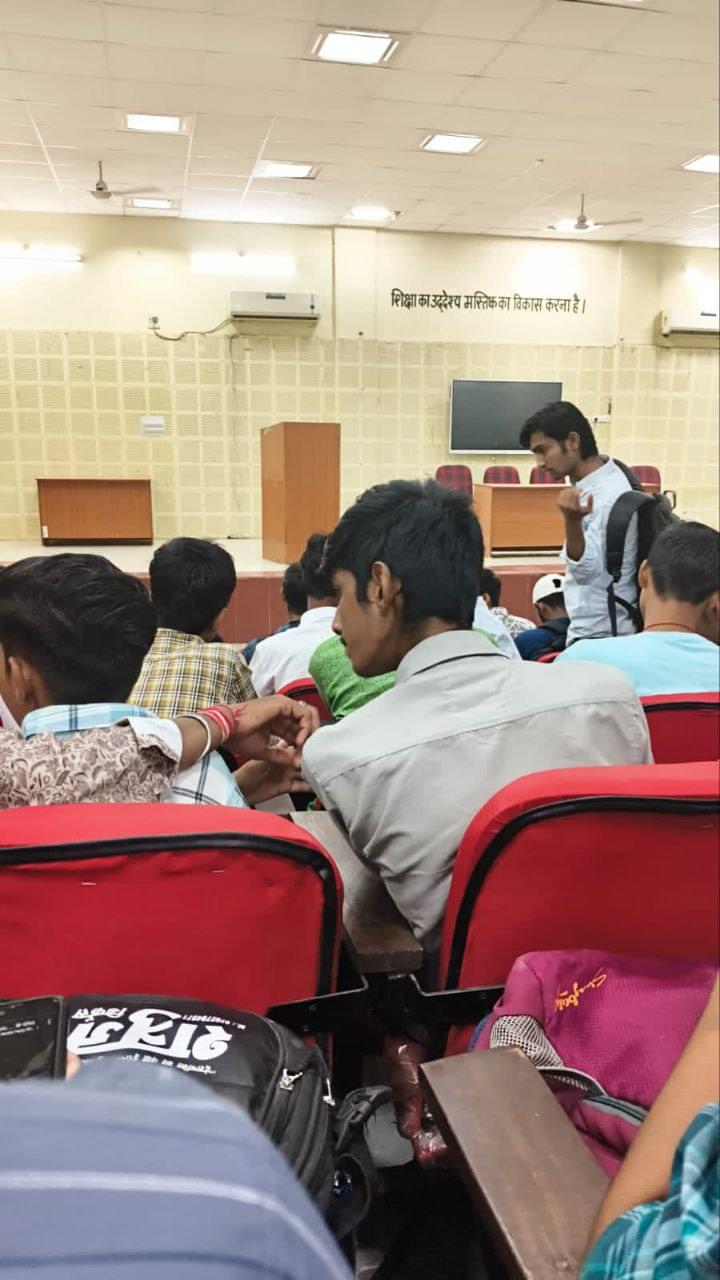
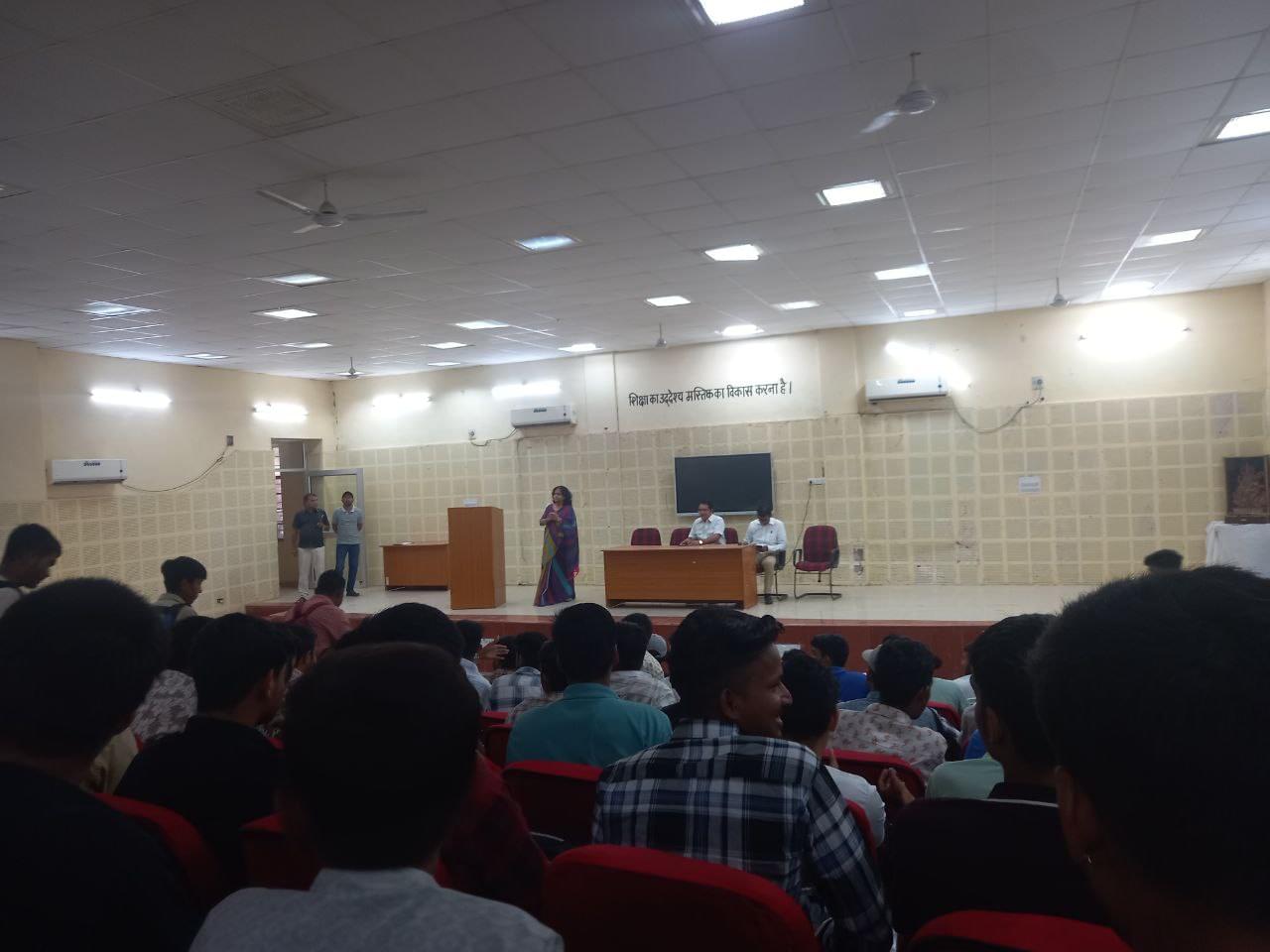

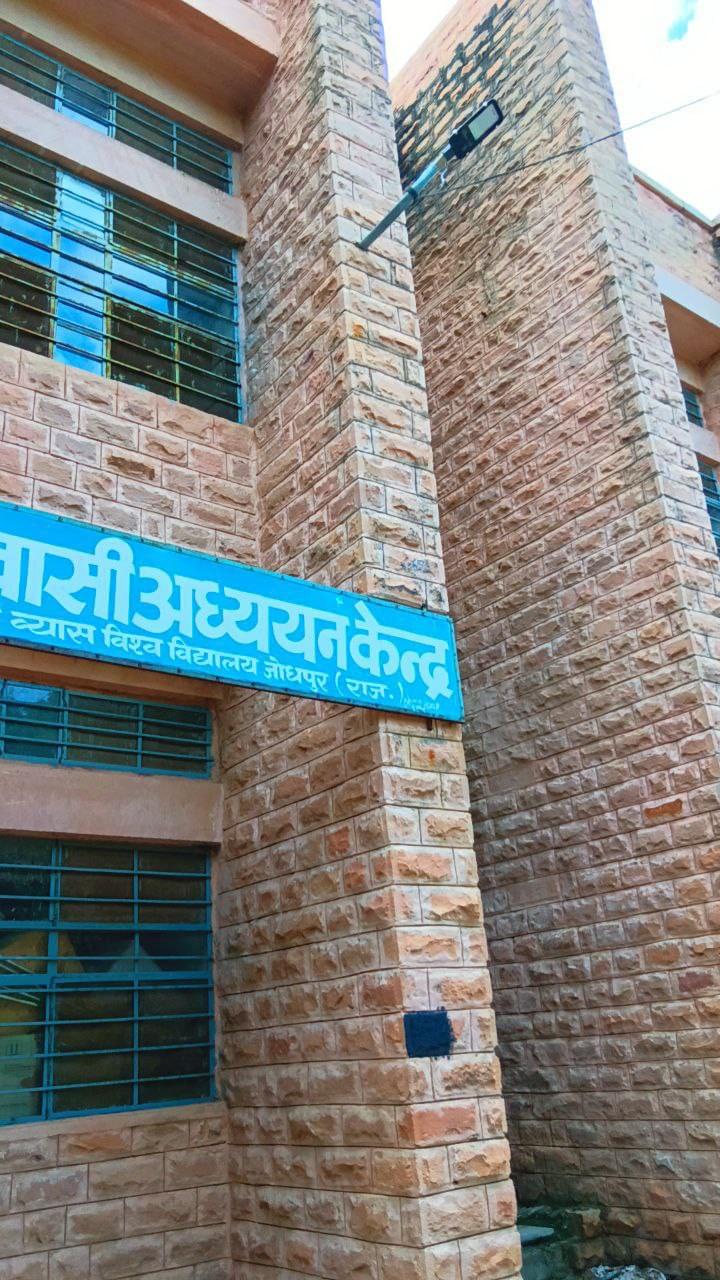
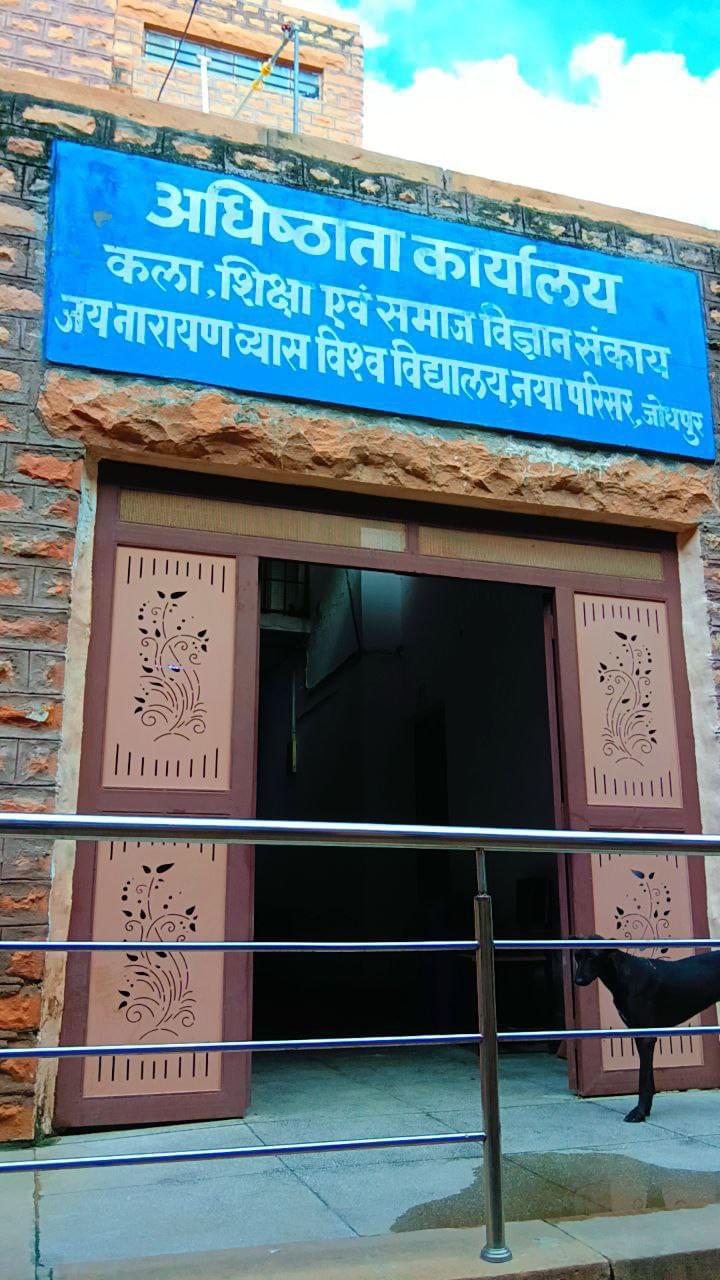

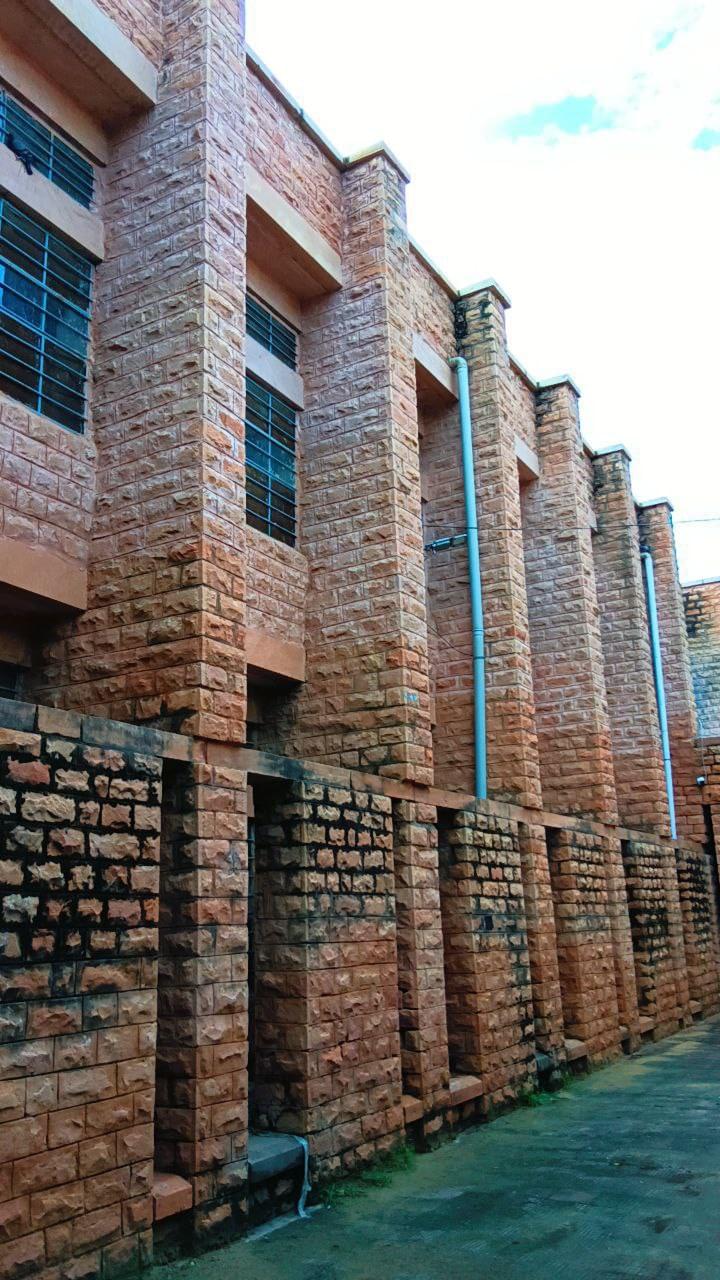











































 (8).jpeg?h=72&w=72&mode=stretch)
.png?h=72&w=72&mode=stretch)



















Comments